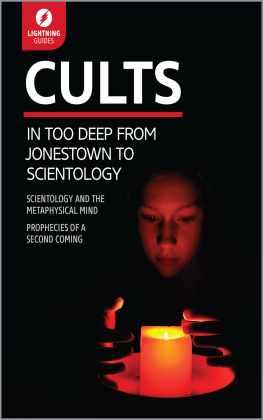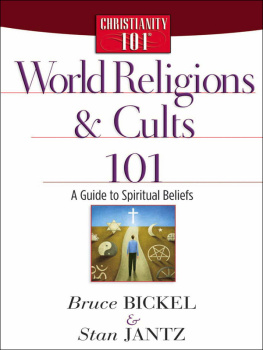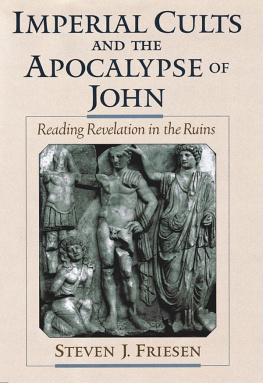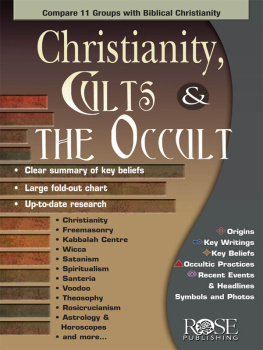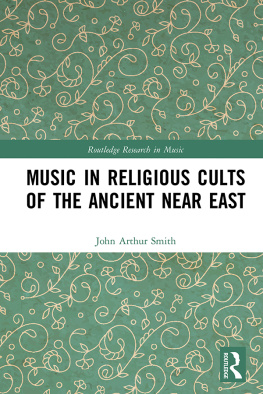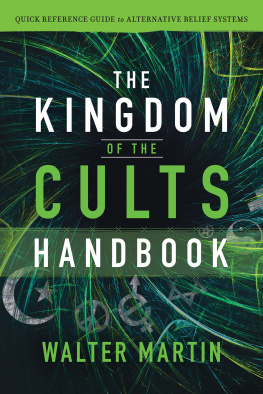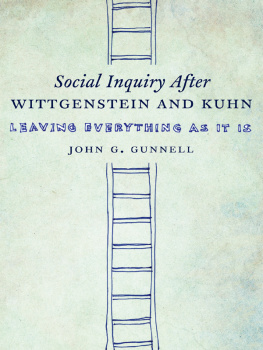ROUTLEDGE LIBRARY EDITIONS: SOCIOLOGY OF RELIGION
Volume 15
SOCIAL SCIENCE AND THE CULTS
SOCIAL SCIENCE AND THE CULTS
An Annotated Bibliography
JOHN A. SALIBA
First published in 1990 by Garland Publishing, Inc.
This edition first published in 2019
by Routledge
2 Park Square, Milton Park, Abingdon, Oxon OX14 4RN
and by Routledge
52 Vanderbilt Avenue, New York, NY 10017
Routledge is an imprint of the Taylor & Francis Group, an informa business
1990 John A. Saliba
All rights reserved. No part of this book may be reprinted or reproduced or utilised in any form or by any electronic, mechanical, or other means, now known or hereafter invented, including photocopying and recording, or in any information storage or retrieval system, without permission in writing from the publishers.
Trademark notice: Product or corporate names may be trademarks or registered trademarks, and are used only for identification and explanation without intent to infringe.
British Library Cataloguing in Publication Data
A catalogue record for this book is available from the British Library
ISBN: 978-0-367-02386-7 (Set)
ISBN: 978-0-429-02545-7 (Set) (ebk)
ISBN: 978-0-367-08591-9 (Volume 15) (hbk)
ISBN: 978-0-367-08593-3 (Volume 15) (pbk)
ISBN: 978-0-429-02320-0 (Volume 15) (ebk)
Publishers Note
The publisher has gone to great lengths to ensure the quality of this reprint but points out that some imperfections in the original copies may be apparent.
Disclaimer
The publisher has made every effort to trace copyright holders and would welcome correspondence from those they have been unable to trace.
SOCIAL SCIENCE AND THE CULTS
An Annotated Bibliography
John A. Saliba
1990 John A. Saliba
All rights reserved
Library of Congress Cataloging-in-Publication Data
Saliba, John A.
Social science and the cults : an annotated bibliography / John A. Saliba.
p. cm. (Sects and Cults in America: Bibliographical Guides, vol. 17) (Garland reference library of social science; vol. 564)
ISBN 0-8240-3719-7 (alk. paper)
1. CultsPeriodicalsIndexes. 2. SectsPeriodicalsIndexes. 3. Religion and sociologyPeriodicalsIndexes. 4. CultsBibliography. 5. SectsBibliography. 6. Religion and sociologyBibliography. I. Title. II. Series: Sects and Cults in America. Bibliographical guides; v. 17. III. Series: Garland reference library of social science; v. 564.
Z7835.C86S34 1990
[BP603]
016.306691dc20
90-32106
CIP
Printed on acid-free, 250-year-life paper
Manufactured in the United States of America
The compilation of this bibliography would have been impossible without the help of many people. Sue and John Ditsky proofread the first draft of the manuscript and Janise A. Grey made invaluable suggestions and corrections in its final stages. The reference librarians of the University of Detroit dedicated their skills and energies to help in the location of a large percentage of the items listed in the following pages. Many scholars have contributed to make this volume as complete as possible. To the following, I am especially grateful: Drs. Angela Aidala, Hans Baer, Robert Balch, Eileen Barker, James A. Beckford, David G. Bromley, Peter B. Clark, Mary Ann Groves, Jeffrey K. Hadden, John R. Hall, Charles L. Harper, Paul Heelas, Irving L. Horowitz, J. Gordon Melton, James T. Richardon, Anthony Robbins, Larry D. Shinn, Anson Shupe, Rodney Stark, Roy Wallis, Bryan Wilson, and Stuart Wright.
The study of contemporary cults, sects, new religious movements, or alternative religions has been conducted in an atmosphere of controversy. Debates about the nature of cults and of the behavior of both their leaders and members have not always been restricted to popular magazines and newspaper reports, nor have they always been conducted with professional courtesy and propriety. The acrimonious quality of the exchanges between experts in the field has left a mark not only on the content and quality of the research carried out on the new movements, but, sometimes, also on the characters of those who have dedicated their time and energies to observe and offer explanations of the current religious scene.
Studying new religious or spiritual movements has practically ceased to be simply an academic pursuit. It has become a matter of taking sides, or at least of being accused of doing so. The terms procult and anticult have become emotional labels that designate the theoretical approach to, and attitude towards, the cults one chooses to study. This dichotomy is frequently conceived of in absolute fashion as a matter of black or white, right or wrong. Any critic of the cults is automatically dubbed an irrational, biased cult-basher, while a scholar who does not state clearly in public talks and printed word that the cults are evil institutions whose activities should at least be curtailed ends up on the black list of the Anti-Cult Movement or, worse still, finds himself or herself accused of being a cult sympathizer or suspected of being a secret member of one of the cults themselves! Many scholars have been explicitly excluded from participation in conferences on cults because they are conceived of as being pro- or anticult in their respective orientations.
Procultists or cult defenders, we are told, consist chiefly of college teachers in departments of sociology and religion, of those involved with civil liberties issues, and of clergy and laymen representing religious organizations and institutions. These scholars and ministers of religion assume that the cults are 1) genuine, even if mistaken and misguided, religious endeavors similar to other religious revivals in different historical eras, and 2) alternative spiritual options that provide solutions to the problems of many young people in times of social unrest and religious turmoil. The rise of new movements can be examined as one expression of the religious pluralism and tolerance that have become major cultural features in the Western world, particularly in North America.
Anticultists or cult critics, on the other hand, take quite a different stand. Consisting mainly of ex-cult members and families of cult members who are supported by some psychologists, psychiatrists, lawyers, and clerics, anticultists view the new movements not as representations of authentic religiosity or spirituality, but rather as evil pseudoreligious organizations. Instead of helping those who join them to alleviate or solve their problems, cults tend to aggravate them or create new ones, sometimes inflicting serious physical, mental, and psychological harm. And rather than being concrete signs of religious liberty, they violate this very freedom by inducing young people to join them with subtle psychological techniques and with false or insufficient information about the total and demanding commitment they are being asked to make. Cult membership is not brought about by conversion, that is, an honest change of heart, but by deceptive manipulation. Those who remain members are so heavily indoctrinated or brainwashed that they are likely to become virtual prisoners in the group they so enthusiastically and unwittingly joined.





